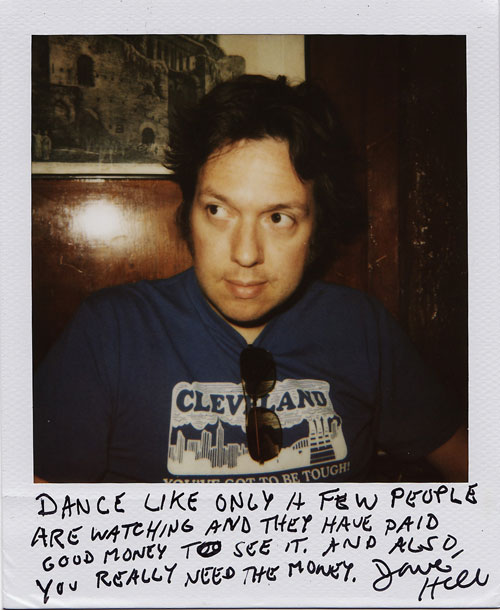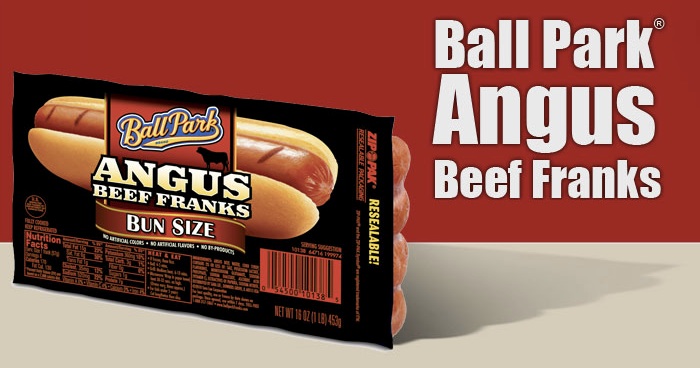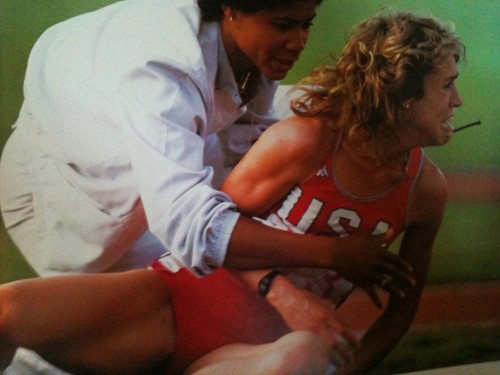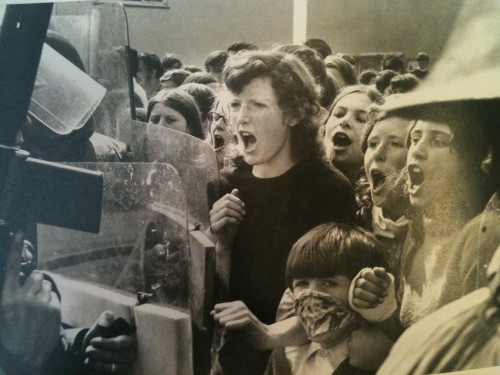!!!
Holy shit, this package of hot dogs can be resealed! Using an exclamation point here seems like overdoing it. But on the other hand, including the word “Resealable” itself is redundant because the red line on the back of the packaging, that plastic zipper, says it all. That plastic zipper is a word that says, “Resealable.” But maybe it says that for people looking at the package online. Because OMFG, BallPark has an awesome website.
What do exclamation points do for you? I love them. Take Mairéad Byrne’s poem “How to Say Thanks When You Mean It But Don’t Really Have Time Right Now,” which goes, simply, “Thnaks!” — using an exclamation point means never having to spell things right. I use exclamation points because I think they tell the recipient of my email how excited I am to be emailing them, and how excited I am that they are alive.
Stop Doing This
Stop titling your stories, “What We _____ About When We _____ About ______.”
This is the literary equivalent of putting a bird on it. (If you don’t get that reference, please stop what you’re doing and go catch up with this joke. Ok. Thanks. Hi.) Using the “What We ______ About When We ______ About ______” title is no longer even an homage to Carver’s story and story collection, What We Talk About When We Talk About Love. I don’t know what anyone is even trying to accomplish by re-using that title anymore. If I was still reading slush for a magazine I would automatically delete any entries with this kind of title. All a title like that says to me is this piece was written by a lazy pseudo-hipster.
Aldrich Ames on Writing
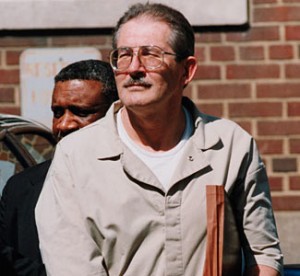
“I’m a traitor, but I don’t consider myself a traitor.”
“The human spy, in terms of the American espionage effort, had never been terribly pertinent.”
“You might as well ask why a middle-aged man with no criminal record might put a paper bag over his head and rob a bank. I acted out of personal desperation.”
“I could have stopped it after they paid me the $50,000. I wouldn’t even have had to go on to do more than I already had: just the double agents’ names that I gave.”
“The use of the polygraph has done little more than create confusion, ambiguity and mistakes.”
“The betrayal of trust carries a heavy taboo.”
So. How to Write a Novel?
Many of you have, so do tell. Once you weren’t writing a novel, then you were. WTF? How did it go, or not go? Exhausting or exhilarating? Robert Penn Warren says you are a car driving a back-road at night—you can see as far as the headlights, the next couple of pages. Or: Should I go total road-map and fuck you, RPW, how about storyboarding (a cousin of waterboarding) or, you know, A. Dillard sprawling out her cut-up paragraphs on a large wooden table in her kitchen so she can see the layout, the spatial design. (But if I’m in the kitchen, gonna make some coffee…) A query letter? What did you just call me? Take a stack of 3X5 index cards and…ur, who even uses index cards anymore and so you begin using heroin, ride the dragon, etc., on the nod, who knows what you’ll find? Technique. You just wake up one day and put ass in seat and black on white and say, “I am writing a novel.” Night-voice says, “Ive done this and that, but I need to write a novel.” Hey! Know what? Plot stems from character under adversity. My ass. No, no, not your ass, go drop shrooms while avoiding trite phrases, cliches, or deliberately unusual words. Simone de Beauvoir was so hot she burned her first two novel drafts, published the third—is that the way? Or is it “I do not usually revise much.” Word count versus using household chores as “thinking time.” Thinking time? Remember that “nothing in a story happens at random” versus feel/fall your way through, let the story bloom, little rose, little flower of verbs, thorns…. oh tired metaphors. Wait. The thing is to know nothing. So.
Oh, I’ll get back up, you barefooted bitch. You novel thing. Ah, fuck. Are we daunted? I feel daunted. Anyone else want write a novel, but, hey, feel daunted? Un-daunt us. Someone. Please?
Lynette “Squeaky” Fromme on Writing

“Anybody can kill anybody.”
“I do not have the answers and as a woman I do not intend to play my own thoughts over the truth. I can clearly state the problems and tell you that I suffer from them.”
“We all came from houses with doors, doors that were supposed to be closed when there were things going on that we weren’t supposed to see, and when our pants were down.”
[re: approaching Gerald Ford with an unloaded weapon] “He looked like cardboard to me… but at the same time, I had ejected the bullet in my apartment, and I used the gun as it was.”
[re: Charles Manson] “I know I laid a lot of my thinking in his mind.”
“I am co-counsel and as co-counsel I have the right to represent myself, speak for myself and conduct myself and my trial by myself in my best interests in order of due process.”
“Keep talking about moving toxic wastes, but never let it cross your mind to quit producing them.”
“People have already shown you can lay blood in front of them and they’re not, you know, they don’t think anything of it.”
“When the circumstances are right, everything becomes a dance.”
“Usually a person who does what I did doesn’t repeat it.”
“It’s in everybody.”
click
I need the structure, or an urge to the structure, a tickling vision, a hint or itch or organic flux to the structure (this is why I teach so many scaffolding-of-fiction based classes—we all have our biases) to begin the writing, to flow. What do you need? What do you need for the click to kick in (Brick: It’s like a switch, clickin’ off in my head. Turns the hot light off and the cool one on, and all of a sudden there’s peace.) ?
from Feedback
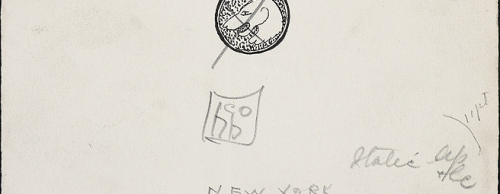
Three or four years ago, I was reading an ambitious student story that made very little sense to me. The language was pleasing rhythmically, sonically, but it was all fairly abstract, too. I found myself writing again and again in the margins: Could this be stated just a little more clearly? Could this be a little more concrete/precise? On a single page, some version of the preceding two sentences appeared five times, and I began wondering what a text composed of only my marginalia might look like. After all, students most likely read what I write in the margins as if it is its own kind of text, one comment after another after another. I held on to this idea for some time, and then finally, earlier this spring, I began creating texts from some combination of my marginalia and end notes. A part of me worries I’m betraying the confidence students place in me when they so bravely hand over stories they have written, but a larger part of me feels compelled to share the conversation, however seemingly one-sided it may seem, as a way of demonstrating the dynamic exchange that takes place between readers and writers. I’m calling the series of texts “Feedback.”
Stuff Left Behind
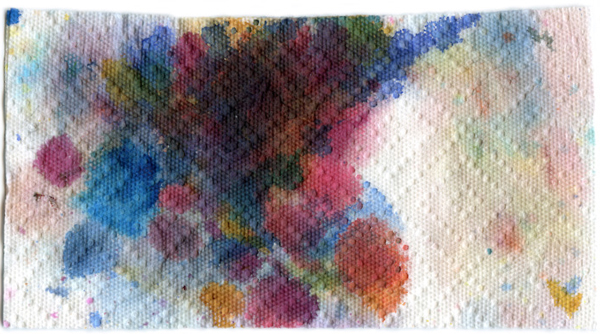
Paper Towel, June 3, 2011, Jeffrey Simmons
I have a small file cabinet under my desk that has in it scraps of paper with notes—on notebook paper, printer paper, index cards, Post-It notes, and even (yeesh) napkins. Early drafts of stories—from a time when I wrote everything long hand first, and then typed them up—are in there. Little bits of research that I printed out, glanced at, and then decided to ignore. Pictures I took out of magazines.
There’s another pile on my bookshelf that’s twice the size of my mid-sized cat.
Why am I keeping it all? I thought about throwing it away, recently, READ MORE >
Cobweb or Lace or Chains?
Been WAY out of town. You hear me? Checked The Google twice in last week (for very brief periods). Been a good while since I plummeted off The Series of Tubes like that. As a writer, it seemed to open me, my, uh, doors of perception (?), geode cracked. I suppose I mean to say I felt I was absorbing more, of people I met (mostly strangers—always a synapse crackle), the sights/sounds/smells/feels/tastes (NY city, outside NY city, sick gorges, fog, wind, microbrews, jackknifed dreams, etc). I don’t know. Seemed like I was eating new food and meeting new words said in new ways and it seemed, well, different.
Possibly I was cleansed, in the manner of detox beverages or Pringle binges or long, long runs through old forest? Off the Net, on the Net. I am now wondering if I shouldn’t take regular, extended periods away…it seems to have surged me, to have prepped me to write, to have planted the brain’s gray furrows with inlaid jewels ready to pry and bloom and sparkle. Thoughts? Do you make yourself leave the Virtual? Or maybe binge on the Virtual, then write? What are your thoughts and ways?

